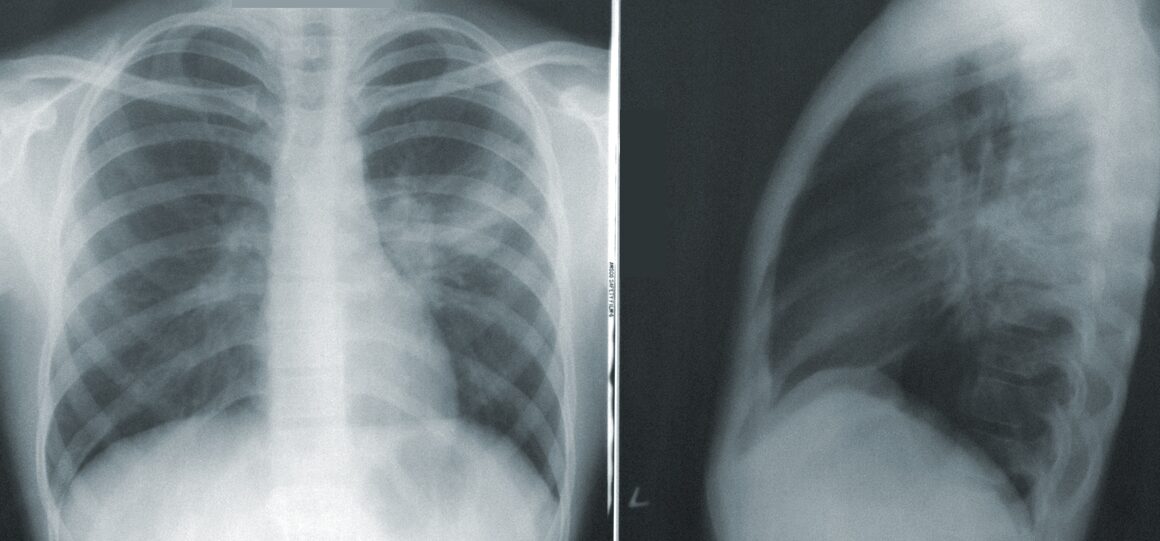Pneumonia

What Causes a Persistent Pneumonia?
By Dr. Kristie
Pneumonia is an inflammatory condition of the lungs that’s usually caused by a bacteria or virus, although fungi and protozoa can cause pneumonia too – particularly in people who have a poorly functioning immune system.
Pneumonias are most commonly caused by bacteria such as Streptococcus or Mycoplasma (sometimes called walking pneumonia) and the symptoms will usually resolve with appropriate antibiotic treatment.
Pneumonia usually shows up clearly on a chest x-ray as a patchy area called an infiltrate - and the x-ray will return to normal once the infection has been treated. However, in some cases, the chest x-ray continues to be abnormal even after treatment – giving rise to signs of a persistent pneumonia. What causes persistent, unresolved pneumonia?
Pneumonia Symptoms
- Cough
- Fever, sweating and shaking
- Shortness of breath
- Rapid and shallow breathing
- Sharp or stabbing pain in chest and gets worse with every deep breath or cough.
- Loss of appetite, low energy and fatigue
- Nausea and vomiting, especially in children.
- Confusion in older people.
American Lung Association
Testing
STD Tests
STD Testing at-Lab (Near Me)
STD Tests at-Home (Kits)
Fertility Tests
Women's Fertility Test at-Home
Health Tests
See All >>
Persistent Pneumonia on Chest X-Ray: What Does It Mean?
When most pneumonias are treated, the infiltrate on chest x-ray usually disappears after four weeks. In some cases, particularly in older people, it may take up to eight weeks for the chest x-ray to return to normal.
Some types of pneumonia such as pneumonia caused by Streptococcus bacteria or Staph bacteria may take a little longer than four weeks to resolve. On the other hand, any time a chest x-ray doesn’t clear within two months after pneumonia treatment, further evaluation is needed
Unresolved Pneumonia: If the Chest X-Ray Doesn’t Clear
In some cases, a persistent pneumonia will fail to resolve because there’s an obstruction in the lung that’s keeping the infection from being successfully cleared. This is of particular concern for people who smoke since lung cancer can cause a persistent lung infiltrate that doesn’t go away after treatment. Another, not infrequent, cause is undiagnosed tuberculosis or a lung abscess from a more deep-rooted infection.
Persistent Pneumonia: What Happens Next?
To look for the cause of an unresolved pneumonia, doctors usually take sputum cultures to check for unusual organisms such as fungi that may not have responded to treatment. A tuberculin skin test may also be done to rule out T.B.
If these fail to show the cause, a doctor will usually order a CT scan of the chest to look for masses or tumors in the lungs that could keep the pneumonia from clearing up. Depending upon the results of the CT scan, further studies such as a bronchoscopy to look directly into the bronchial tubes may be needed.
Dealing with a Persistent Pneumonia: The Bottom Line?
Any time a pneumonia doesn’t resolve on chest x-ray after two months, it needs further work-up, particularly in an older person or a smoker. An unresolved pneumonia can be a sign of a more serious lung problem. Don’t ignore it.
About the Author
She is a Medical Doctor with a concentration in Family Practice. She also has an undergraduate degree in both Biology and Psychology and masters in Clinical Pathology.
References:
Merck Manual. Eighteenth Edition.
 Disclaimer: Articles not intended to Diagnose, Treat, Cure or Prevent Diseases.
Disclaimer: Articles not intended to Diagnose, Treat, Cure or Prevent Diseases.
Infections | Education | Products | Testing


